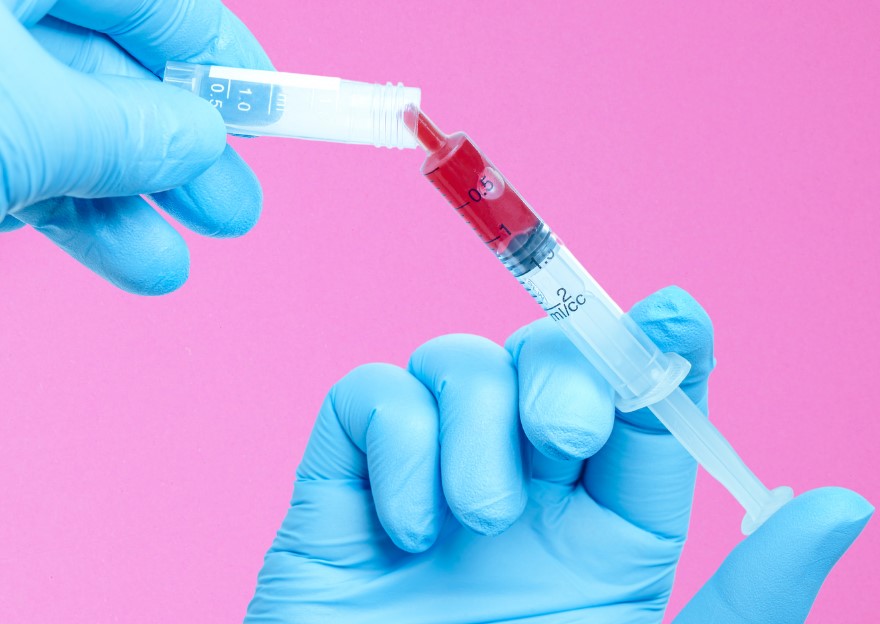
CHROMOSOMAL ANALYSIS: THE ROLE OF KARYOTYPING IN UNDERSTANDING INFERTILITY
Chromosomal analysis, also known as karyotyping, is a diagnostic test that examines the chromosomes in a person's cells to check for any abnormalities or genetic disorders. This analysis can be also useful in understanding the causes of infertility.
Chromosomal abnormalities contribute to approximately 10-15% of cases of recurrent miscarriages and around 2-5% of cases of infertility. These abnormalities can disrupt normal gamete formation, leading to difficulty in conceiving or an increased risk of miscarriage when conception does occur. Therefore, chromosomal analysis, such as karyotyping is an important component of infertility evaluations, especially for couples experiencing recurrent pregnancy loss or unexplained infertility. Early detection of parental chromosomal abnormalities allows for appropriate counseling and may influence treatment decisions, such as the use of assisted reproductive technologies like in vitro fertilization (IVF) with preimplantation genetic testing (PGT) to select chromosomally normal embryos.
Peripheral Blood Karyotyping
(1 person)
350€

Blood Draw

No doctor's referral

Periheral blood

Storage in the refrigerator. Shipping at ambient temperature

Results in 30 business days
WE GOT YOU.
The effect of abnormal parental Karyotypes on embryos
An abnormal parental karyotype refers to a chromosomal abnormality in one or both parents that can result in chromosomal imbalances of the embryo, such as aneuploidy (abnormal number of chromosomes). This can lead to structural abnormalities or genetic disorders in the embryo, which may affect its viability. Furthermore, certain chromosomal abnormalities in parents, such as translocations or inversions, can increase the risk of implantation failure or early miscarriages and recurrent pregnancy loss. The most common parental chromosomal abnormality detected in infertility testing is a balanced translocation. Balanced translocations are genetic rearrangements where segments of chromosomes are exchanged without loss or gain of genetic material. While individuals with balanced translocations typically do not display any physical or intellectual abnormalities themselves, these rearrangements can lead to fertility issues and recurrent pregnancy loss when passed on to offspring. In individuals with balanced translocations, gametes (sperm or eggs) may have an unbalanced distribution of genetic material due to the translocation. This can result in embryos with abnormal chromosome numbers, leading to implantation failure, miscarriage, or the birth of a child with developmental abnormalities or genetic disorders. The impact of a balanced translocation on fertility and pregnancy outcomes depends on various factors, including the specific chromosomes involved, the size of the translocated segments, and whether the translocation disrupts critical genes or regulatory regions.
The effect of abnormal parental Karyotypes on male and female infertility.
Some chromosomal abnormalities can also affect the fertility of one or both parents. For example, certain structural abnormalities may disrupt the normal functioning of reproductive organs or impair gamete production, making it difficult to conceive or maintain a pregnancy.
In men:

In women:

Parental karyotype testing is typically recommended in cases of:
Ovarian insufficiency:
Severe oligospermia or azoospermia:
Unexplained infertility:
Difficulty conceiving:
Recurrent miscarriages:
Failed pregnancies:
If you have family members with chromosomal abnormalities or with a history of pregnancies with chromosomal abnormalities:
Additionally, it may be advised if there are signs or symptoms suggestive of chromosomal disorders, such as developmental delays or congenital abnormalities in children.
In cases where one partner carries a balanced translocation, genetic counseling and testing are recommended to assess the risk of passing the translocation to offspring. Options for managing fertility and reducing the risk of recurrent pregnancy loss may include preimplantation genetic testing (PGT) during in vitro fertilization (IVF) to select embryos with balanced chromosome numbers before transfer to the uterus.
HOW IT WORKS.

Place your order online and get the FERTILYSIS box delivered at your home.

Follow our instructions to collect your samples and ship them back to us for analysis.

Receive your easy to understand results including treatment suggestions in just a few days via email.
Is your infertility really ‘’unexplained’’ or are you still undiagnosed?If you have been struggling with infertility and haven’t been getting convincing answers, chances are you are still missing a piece of the puzzle.
STILL HAVE QUESTIONS?

These our the most common questions regarding this panel.
If you have more, please refer to our Q&A page.
YES, absolutely! The above price is for one person.
No special instructions are required prior to performing the test (fasting etc).
Absolutely! Our specially developed preservative ensures that Fertilysis DFI test is possible through mail order from the comfort of your home without the discomfort associated with semen sample collection in a medical facility or waiting lists. We ship worldwide!
The perform the test, please provide us with a sample of peripheral blood, collected in a lavender vial. This can be easily done by a certified healthcare professional such as a nurse, lab technician, or physician, following our instructions, at a licensed medical facility in your vicinity. To ensure prompt processing, we kindly request that you send us the vials on the same day as the blood draw, facilitating expedited receipt. For optimal timing, we recommend coordinating the blood draw and vial pickup for a Monday to mitigate any transit delays over the weekend.


